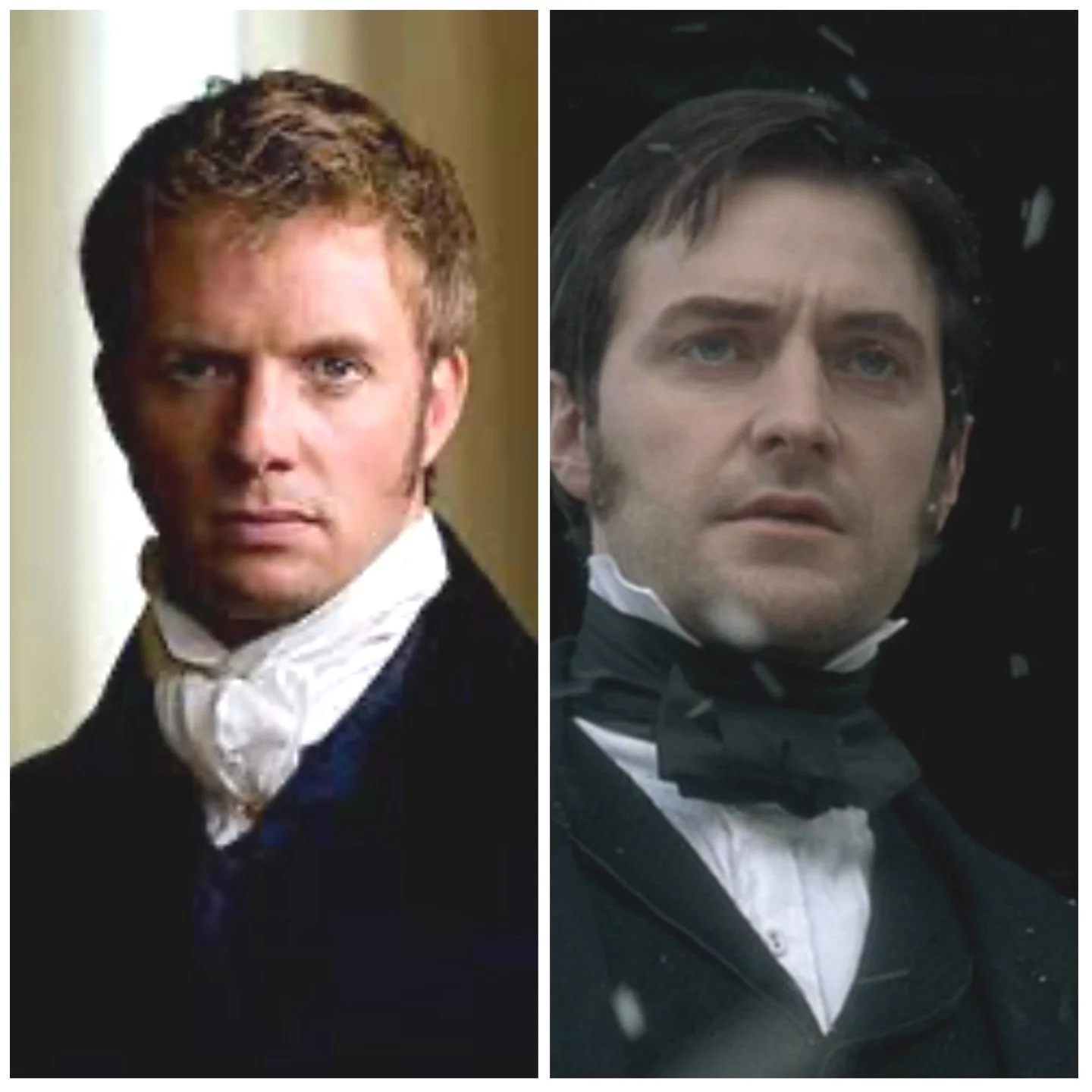Whose heart isn’t affected by Captain Wentworth’s eight year wait for Anne Elliot? Eight long years! A man must truly be captured by a woman to wait that long for her.
Re-reading Persuasion recently, I was once again impressed at his unbreakable admiration and affection for Anne. Even though he is surly and proud about the breakup, he still loves her. He tries his hand at paying attention to Louisa Musgrove, but his heart is never in it. Tragic events bring out Anne’s amazing strength of character: calm in crisis, practical wisdom, sincerity, compassion, and self-sacrifice. He knows no other woman can compare.
John Thornton also witnesses the powerful strength of Margaret’s character, and never more so than during the frightening danger of the riot. Margaret forcefully insists he talk to his suffering workers, she doesn’t flee the situation but faces it, she follows him down to bar the door behind him when he goes out and races out moments later to try to calm the mob! And of course, most of all, she shields him with her body when she sees he’s in danger. Her prime motive in all this: compassion. From this moment on Thornton’s completely captivated.
The reader knows for certain that no other woman will do for Thornton now because Gaskell reveals his agonizing, stubborn devotion to Margaret after her rejection of him.
He said to himself that he hated Margaret, but a wild, sharp sensation of love cleft his dull, thunderous feeling like lightning, even as he shaped the words expressive of hatred. His greatest comfort was in hugging his torment; and in feeling, as he had indeed said to her, that though she might despise him, condemn him, treat him with her proud sovereign indifference, he did not change one whit. She could not make him change. He loved her, and would love her; and defy her, and this miserable bodily pain…
All that he gained in return for his sixpenny omnibus ride, was a more vivid conviction that there never was, never could be, any one like Margaret; that she did not love him and never would; but that she - no! nor the whole world – should never hinder him from loving her.
So how much time does John Thornton spend loving Margaret without any hope of reciprocation? About two years! Two years of agony, trying to go on with his life without hope of having Margaret as his wife.
Captain Wentworth might have spent only two years without Anne if he had only swallowed a bit of his pride and returned to see her earlier. At the end of the novel he asks Anne if she would have accepted him after his return from a successful voyage (netting him two thousand pounds), a point in time two years after their breakup. Anne exclaims that she would have, and he admits that he was too hurt and prideful to try it – at the price of six more years of waiting!
Thornton, too, could have shortened the length of his agony if he had perceived any change in Margaret’s manner towards him. She was wholly in love with him at the time they said their parting words to one another in Milton, but he was still too hurt to see it. He had a fleeting impulse to ask again but suppressed it:
“He started forwards…to hand Mrs. Shaw down to the carriage. As it drove up , he and Margaret stood close together on the door-step, and it was impossible but that the recollection of the day of the riot should force itself into both their minds. Into his it came associated with the speeches of the following day; her passionate declaration that there was not a man in all that violent and desperate crowd, for whom she did not care as much as for him. And at the remembrance of her taunting words his brow grew stern, though his heart beat thick with longing love. ‘No!’ said he, ‘I put it to the touch once, and I lost it all. Let her go, - with her stony heart, and her beauty; - how set and terrible her look is now, for all her loveliness of feature! She is afraid I shall speak what will require some stern repression. Let her go. Beauty and heiress as she may be, she will find it hard to meet with a truer heart than mine. Let her go!’
That mistaken impression of her feelings cost him over a year of loneliness and pain!
Of course in the case of both of these men, their long struggle and agony only added to the romantic drama of their powerful feelings. It’s tremendously satisfying to see their brooding faces break into joy when they realize that they were wrong — that they have been loved and cherished right back!




